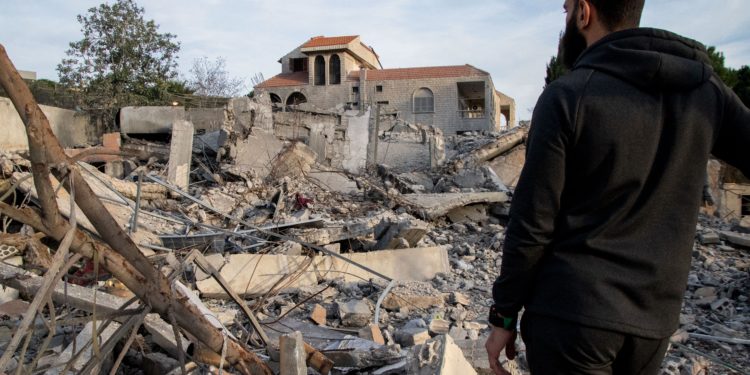Part of the resolution’s security arrangements include a demilitarized area between the two countries, with an exception for official forces of the Lebanese government and the United Nations.
Hezbollah is a Shia Muslim political party with ties to Iran. Despite a 2004 U.N. Security Council resolution calling for the disarmament of all Lebanese militias to restore sovereignty to the government, Hezbollah has refused to disarm. The 2006 U.N. resolution reiterated its call for all Lebanese militias to disarm.
Hezbollah-aligned group accuses bishops of treason
The statement from the Maronite bishops comes amid heightened tensions and a rising death toll on the Lebanese-Israeli border and follows calls from a Hezbollah-aligned group for an investigation into two Lebanese prelates for allegedly committing treason by meeting with the president of Israel.
The two bishops, who oversee dioceses in Israel, were said to have attended a meeting with Israeli President Isaac Herzog that is held annually by the president for Christian leaders in the Holy Land just before Christmas.
It is a crime in Lebanon for any Lebanese citizen to have contact with Israel, under the country’s 1955 anti-normalization laws. There is, however, an exception for religious leaders to minister to congregations living in Israel. Those freedoms, however, have been challenged in past years
The crime of treason carries severe penalties ranging from a fine and up to life in prison, and death in cases involving armed conflict, Walid Phares, a Lebanese-American author and expert on the Middle East, told CNA earlier this month.
One of the prelates, Maronite Archbishop Moussa El-Hage of Haifa and the Holy Land, denied taking part in the meeting, denouncing “fabricated information involving him,” according to the news website This Is Beirut.
He said in an interview with Nidaa al-Watan that the Christian leaders who met with the Israeli president “denounced the military actions in Palestine,” according to the outlet.
In that interview, he emphasized “the need not [to] give in to the campaigns of betrayal and intimidation of which he is the target, and to proceed instead with initiatives that serve the Church, the diocese, and the Christians in the Holy Land.”
He also said that the Vatican and his local See “express opinions on what he is or is not allowed to undertake” and said that he has “absolute freedom of action as long as he acts by the teachings and instructions of Pope Francis and Maronite Patriarch Bechara al-Rai.”
(Story continues below)
Subscribe to our daily newsletter
Credit: Source link




